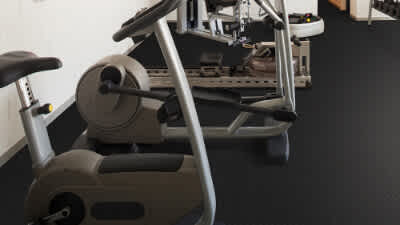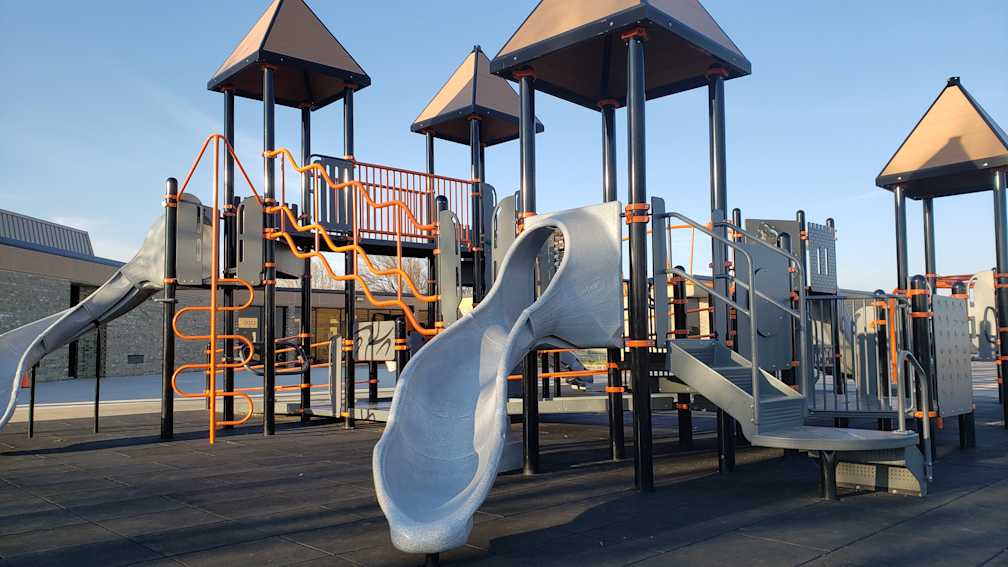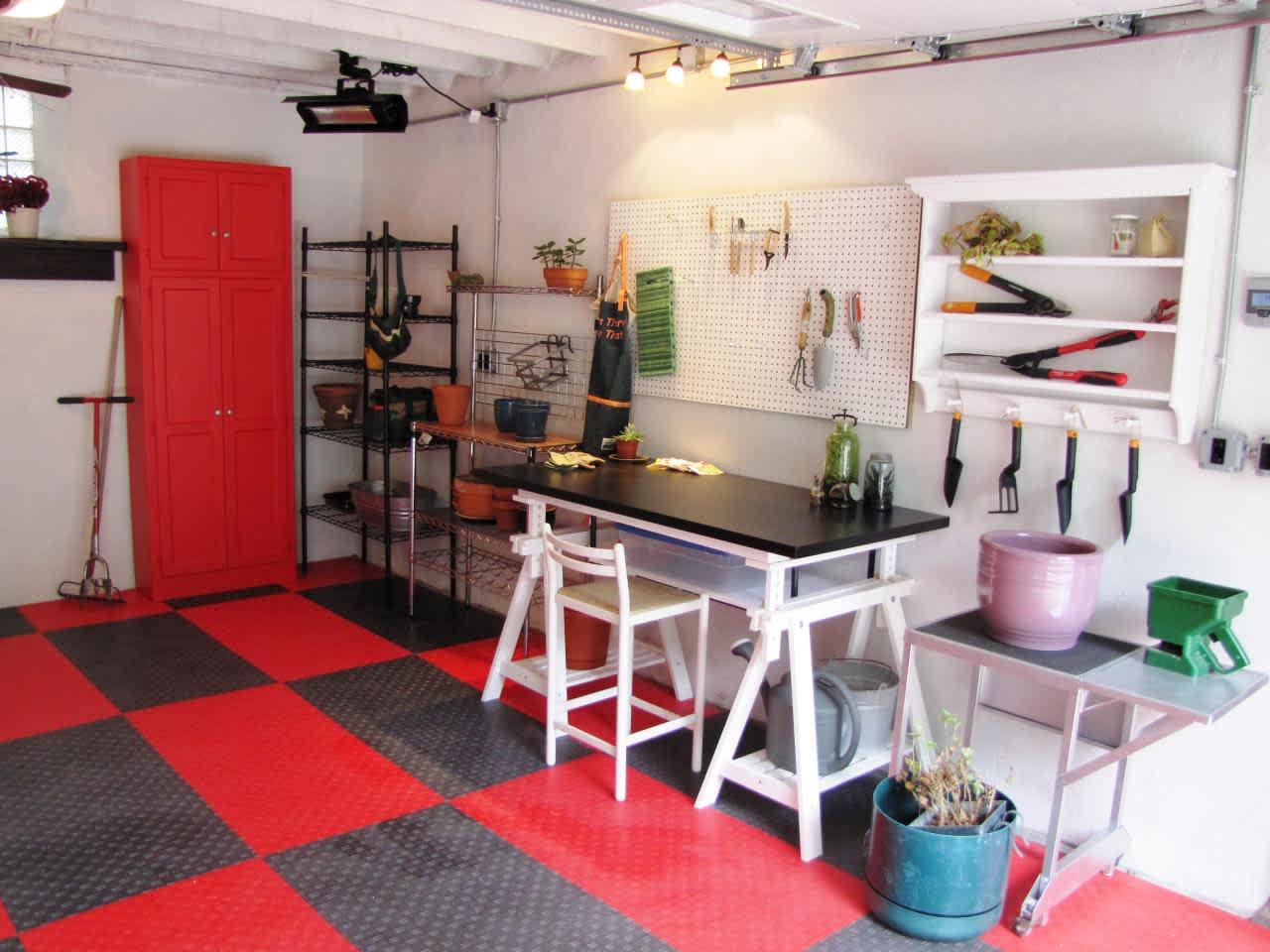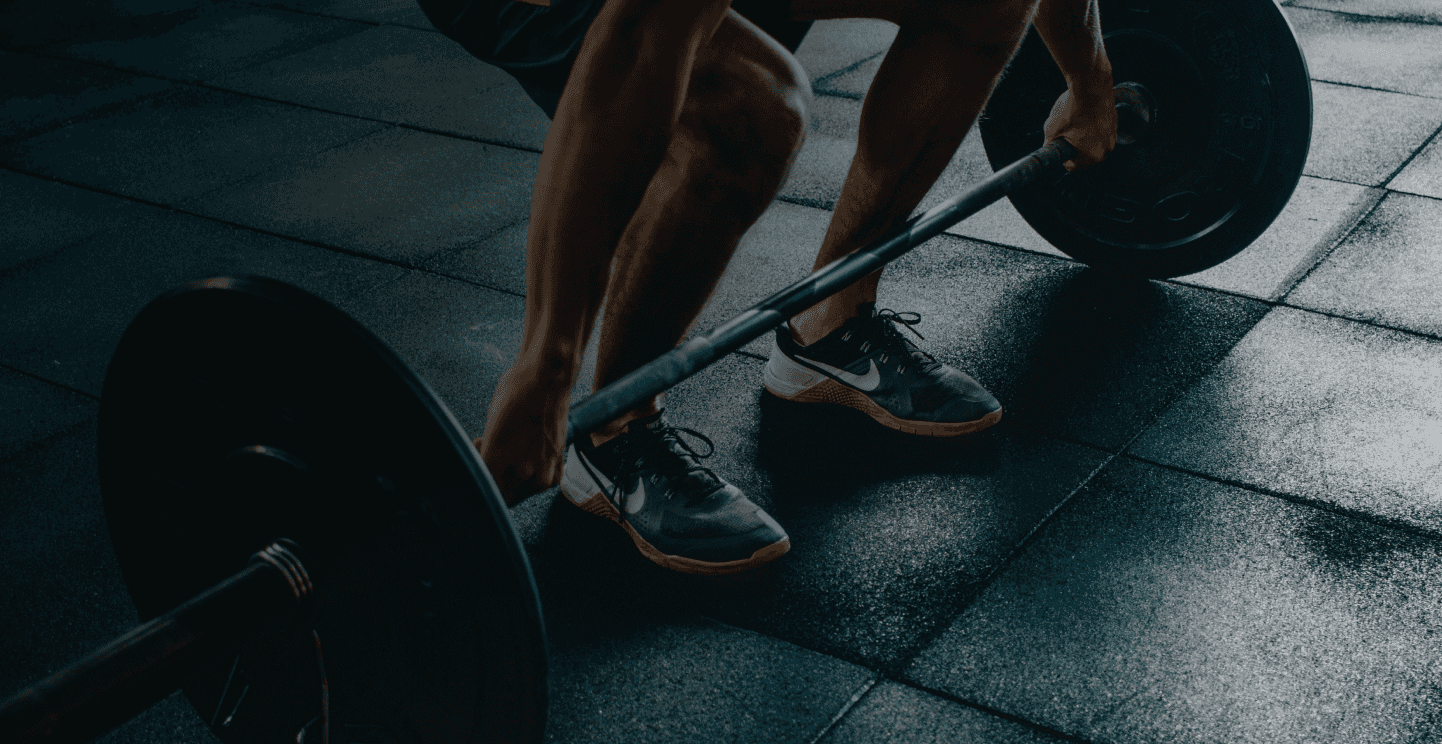Rubber Tiles

Looking for an easy to install flooring option? It doesn’t get any easier than rubber tiles. We mean it! These tiles are known for their ease and simplicity because they can quickly snap together like a puzzle piece. So if you want to refloor an entire room or just a small space, rubber tiles will make it a quick and easy job!
If you’re looking for the ultimate DIY project, it doesn’t get any easier than rubber tiles at RubberFlooring4U!
What are Rubber Tiles?
Rubber interlocking tiles are a versatile, durable, and eco-friendly flooring solution suitable for various applications. Their ease of installation, slip resistance, noise reduction, and low maintenance make them a popular choice for gyms, playgrounds, commercial spaces, and homes. With their wide range of available colors, textures, and sizes, rubber interlocking tiles offer a customizable flooring option that meets the needs of various users and environments.
Furthermore, the use of recycled materials in the production of these tiles contributes to a more sustainable future, making them an environmentally responsible choice. With all these benefits, it's no wonder that rubber interlocking tiles have become a preferred flooring solution for many residential and commercial applications. So, whether you're designing a new gym or upgrading your home's play area, rubber interlocking tiles are a practical and aesthetically pleasing option to consider.
The Advantages of Rubber Tiles
Easy Installation: One of the most significant advantages of rubber interlocking tiles is their ease of installation. The tiles are designed with interlocking edges that fit together like puzzle pieces, allowing for a secure connection without the need for adhesives or special tools. This feature enables users to install the flooring themselves and makes it easy to replace or reposition tiles as needed.
Durability: Rubber interlocking tiles are highly durable and resistant to wear and tear. The material can withstand heavy foot traffic, dropped weights, and other types of impact without showing signs of damage. This makes them an excellent choice for high-traffic areas and spaces where durability is a priority.
Slip Resistance: The surface of rubber interlocking tiles provides a slip-resistant grip, which is crucial for safety in areas where there may be moisture or spills. This feature makes them a popular choice for gyms, playgrounds, and other environments where safety is paramount.
Noise Reduction: Rubber is an effective noise dampener, and rubber interlocking tiles can significantly reduce noise levels in a space. This makes them ideal for use in gyms, fitness centers, and commercial spaces where noise can be a concern.
Easy Maintenance: Rubber interlocking tiles are low-maintenance and easy to clean. They can be swept or vacuumed to remove dust and debris, and spills can be wiped up with a damp cloth or mop.
Eco-Friendly: Many rubber interlocking tiles are made from recycled rubber, which makes them an environmentally friendly flooring option. By using these tiles, you're contributing to the reduction of waste in landfills and promoting sustainability.
Where to Use Rubber Tiles?
The simple answer to this question is – anywhere! Honestly! These tiles are extremely durable and versatile. You can use rubber tiles for garage, gym, playground, classroom, or anywhere that you need a tough floor that will provide comfort while also standing up to wear and tear.
Here are some of the most common uses for these rubber tiles:
Gyms and Fitness Centers: The durability, slip resistance, and noise reduction features of rubber interlocking tiles make them an ideal flooring solution for gyms and fitness centers. They can withstand the impact of dropped weights and heavy exercise equipment while providing a safe and comfortable surface for workouts.
Playgrounds and Parks: Rubber interlocking tiles are commonly used in playgrounds and parks, providing a safe and comfortable surface for children to play on. They offer excellent shock absorption, reducing the risk of injury from falls.
Commercial Spaces: Businesses often use rubber interlocking tiles in high-traffic areas or spaces that require a durable and slip-resistant floor. They can be found in retail stores, warehouses, and other commercial environments.
Home Use: Rubber interlocking tiles can also be used in residential spaces, such as home gyms, garages, basements, and even children's playrooms.

Rubber Playground Tiles
Experience unparalleled safety and quality with our premium Rubber Playground Tiles, the perfect choice for creating a secure and enjoyable play area for children of all ages. Manufactured from high-quality, recycled rubber, these versatile tiles provide an eco-friendly and cost-effective solution that promotes sustainability and supports a greener future.
Our Rubber Playground Tiles are designed with safety in mind, featuring superior shock absorption and impact resistance to reduce the risk of injuries from falls or accidents. The non-slip surface ensures children can run, jump, and play without the fear of slips and falls, while the porous material allows for efficient drainage, preventing puddles and keeping the area dry even after heavy rainfall.
Installing our playground tiles couldn't be easier, thanks to their interlocking design that ensures a seamless and secure fit. This DIY-friendly installation process saves time and money while providing the opportunity for customization in terms of size, layout, and color patterns, enhancing the overall aesthetic of your playground.
Low maintenance is another key advantage of our Rubber Playground Tiles. They are resistant to mold, mildew, and fading, requiring minimal upkeep to maintain their vibrant appearance and functionality. The tiles are also easy to clean, requiring only a hose or pressure washer to remove dirt and debris, keeping the play area hygienic and inviting.
Suitable for both residential and commercial playgrounds, our Rubber Playground Tiles provide a long-lasting, attractive, and safe surface that meets industry safety standards, ensuring peace of mind for parents and caretakers. Experience the benefits of a worry-free play environment and encourage outdoor play by investing in our high-quality Rubber Playground Tiles today.

Other Uses for Rubber Floor Tiles
We just told you some great ways you can use these tiles, but that's not all! They work great in any high-traffic area and even in areas that see the water.
Here are some additional uses for rubber floor tiles:
Sports Facilities: Rubber interlocking tiles are widely used in indoor sports facilities due to their durability, slip resistance, and shock absorption properties.
Daycare Centers and Schools: Rubber flooring is an excellent choice for daycare centers and schools, as it provides a safe, comfortable, and easy-to-clean surface for children's activities and reduces the risk of injuries.
Industrial Workplaces: Rubber flooring can be used in industrial settings where workers spend long hours standing or walking, as it provides cushioning and reduces fatigue. It also offers resistance to chemicals and heavy machinery, making it suitable for factories and workshops.
Animal Care Facilities: Rubber tiles can be used in veterinary clinics, kennels, and stables, as they offer a comfortable and slip-resistant surface for animals, while also being easy to clean and maintain.
Pool Areas and Locker Rooms: Due to their water resistance and slip-resistant properties, rubber floor tiles are a popular choice for pool areas, locker rooms, and shower areas, where moisture and wet surfaces are common.
Boat Decks and Marinas: Rubber flooring can be used on boat decks and in marinas to provide a slip-resistant, durable, and comfortable surface that can withstand exposure to water and the elements.
Outdoor Patios and Walkways: Rubber interlocking tiles can be used to create slip-resistant and comfortable outdoor spaces, such as patios, walkways, and rooftop terraces. They are also weather-resistant, making them suitable for various climates.
Dance and Yoga Studios: Rubber flooring provides an ideal surface for dance and yoga studios, as it offers cushioning, slip resistance, and noise reduction, which are essential for these activities.
Soundproofing and Vibration Reduction: Rubber tiles can help reduce noise and vibrations in spaces such as recording studios, music practice rooms, or home theaters, thanks to their sound-absorbing properties.
Temporary Flooring Solutions: Rubber interlocking tiles can be easily installed and removed, making them a suitable temporary flooring solution for events, trade shows, and other short-term applications.

Rubber Tile Thickness Options
By now, you know how durable these tiles are. So, how thick do they need to be? Well, that really all depends on what you'll be doing on your flooring.
Here are the most popular thickness options:
8mm (approximately 5/16") thickness: This is the most popular thickness for home gyms and residential workout spaces. It offers a good balance of comfort, durability, and shock absorption for bodyweight exercises, light dumbbell workouts, and high-traffic areas. It is also suitable for areas where kids play, as it provides a safe, slip-resistant surface.
3/8" (approximately 9.5mm) thickness: This thickness is often chosen for commercial gyms, CrossFit facilities, and other high-intensity workout spaces. The increased thickness provides better protection for the subfloor and equipment, making it suitable for heavy-duty exercises such as powerlifting and Olympic lifting. It also offers improved sound insulation and shock absorption.
1/2" (12.7mm) and 3/4" (19mm) thicknesses: These ultra-thick rubber tiles are ideal for commercial gyms, CrossFit boxes, and other heavy-duty applications. They provide excellent shock absorption, noise reduction, and protection for both equipment and the subfloor. These thicknesses are particularly suitable for areas where heavy weights are dropped, as they can minimize the risk of damage to the floor and reduce the impact on the athletes' joints.
1" (25.4mm) thickness: One-inch thick rubber tiles are versatile and can be used in a variety of applications. They are perfect for installing over plush carpets, as they provide a stable surface for exercising without damaging the underlying carpet. Additionally, they can be used as playground tiles, offering a safe and cushioned surface for children to play on.
2-3" (50.8-76.2mm) or thicker: These extra-thick rubber tiles are primarily designed for outdoor playgrounds and play areas. They provide exceptional shock absorption and fall protection, reducing the risk of injuries to children. These thicknesses also offer increased durability and longevity, making them suitable for public spaces that experience heavy use.
In conclusion, the appropriate rubber tile thickness depends on the intended application and usage requirements. Home gyms typically require thinner tiles, while commercial and CrossFit gyms benefit from thicker options. For playgrounds and play areas, thicker tiles provide the necessary safety and durability. By selecting the right thickness for your specific needs, you can ensure that your rubber flooring performs optimally and lasts for years to come.
Rubber Tile Materials
Rubber tiles are an eco-friendly and versatile flooring option, made from recycled rubber derived from used tires. By choosing rubber tiles for your flooring needs, you are not only contributing to a sustainable environment by reducing tire waste in landfills but also benefiting from their durability and ease of maintenance. Rubber tiles are available in three distinct forms: vulcanized, non-vulcanized, and virgin rubber. Each type offers unique characteristics that cater to specific requirements and preferences.
Vulcanized Rubber Tiles
Vulcanized rubber tiles are manufactured by subjecting rubber to a process known as vulcanization, which involves heating and adding sulfur or other chemicals to create a dense, ultra-durable, and non-porous rubber material. Their non-porous nature makes them easy to clean and maintain, which is particularly useful in high-traffic areas or where hygiene is a priority. Vulcanized rubber tiles are ideal for heavy-duty applications, such as gym flooring, where their durability and resilience to impact are essential.
Non-Vulcanized Rubber Tiles
Non-vulcanized rubber tiles are a more cost-effective and common alternative to their vulcanized counterparts. While they may not be as dense or completely non-porous, they still offer considerable durability and are suitable for a wide range of applications. Non-vulcanized rubber tiles are an excellent choice for those seeking an affordable, yet reliable flooring solution.
Virgin Rubber Tiles
Virgin rubber tiles are made from the purest form of natural rubber, without any recycled materials, additives, or latex. They boast an ultra-dense structure that allows them to retain bright, vibrant colors throughout the tile, making them a popular choice for visually appealing flooring designs. Virgin rubber tiles are highly resistant to fading, even in extreme conditions, ensuring that your flooring retains its eye-catching appearance for years to come. The primary drawback of virgin rubber tiles is their higher price compared to recycled rubber options. However, many individuals are willing to invest in this premium product for its striking appearance and exceptional durability.
Rubber tiles, whether vulcanized, non-vulcanized, or virgin, offer a range of benefits for both residential and commercial applications. Their eco-friendly nature, durability, and ease of maintenance make them an attractive choice for various settings, from gyms to playrooms to offices. By understanding the differences between the three types of rubber tiles, you can select the perfect flooring solution that meets your requirements and preferences, while contributing to a more sustainable environment.
Rubber Tiles Appearance
One of the most attractive features of rubber tiles is their seamless appearance, which rivals that of traditional rubber rolls. When properly installed, interlocking rubber tiles create a smooth, uniform surface that is visually appealing and minimizes any visible lines between the tiles. This cohesive look not only enhances the aesthetic appeal of the space but also ensures the tiles remain securely in place, reducing the risk of trips or accidents.
The tight interlocking system of rubber tiles means that even though you may notice the fine lines connecting the tiles upon close inspection, the overall appearance remains clean and uninterrupted. The precision of this interlocking mechanism also guarantees that the tiles will not lift or shift, maintaining a safe and stable flooring surface.
One of the most significant advantages of rubber tiles is the wide array of color options and patterns available. This variety allows for customization and creativity when designing your floor, enabling you to create a truly unique and personalized space. For instance, you can choose from vibrant, confetti-like tiles with multi-colored flecks that add a playful and energetic touch to the area, or opt for solid-colored tiles in different shades to develop intricate patterns or shapes.
In addition to their aesthetic qualities, rubber tiles are also known for their sound-dampening properties, making them an excellent choice for gyms, playrooms, or other spaces where noise reduction is a priority. Moreover, their slip-resistant surface and shock-absorbing qualities provide added safety and comfort, enhancing the overall user experience.
In summary, rubber tiles offer a seamless and attractive flooring solution that combines both form and function. With their smooth layout, secure interlocking system, and diverse color options, rubber tiles provide an opportunity for creative and unique design possibilities while maintaining a safe and comfortable environment.
The Best Subfloor for Rubber Tiles
Selecting the right subfloor is crucial to ensure the longevity, safety, and optimal performance of your rubber tiles. We will discuss the best subfloor options for rubber tiles and the necessary preparations to create a stable foundation.
Ensuring a Level Surface: Before installing rubber tiles, it is essential to ensure that the subfloor is level. A level surface provides a stable base for the tiles, reducing the risk of tiles shifting or becoming uneven over time. This not only enhances the aesthetics of your flooring but also ensures maximum safety for users. To achieve a level surface, you may need to use leveling compounds, sand high spots, or fill in low spots on the subfloor.
Best Subfloor Options for Rubber Tiles:
Rubber tiles can be installed over various subfloors, including:
Concrete: This is the ideal subfloor option for rubber tiles, as it provides a sturdy, stable, and level base. Ensure the concrete is clean, dry, and free of cracks or other irregularities before installation.
Low-pile carpet: Rubber tiles can be installed over low-pile carpets, provided they are clean and in good condition. However, for plush or high-pile carpets, it is advisable to use thicker rubber tiles (1-inch or more) to ensure stability and prevent the tiles from sinking into the carpet.
Hardwood: Hardwood floors can serve as a suitable subfloor for rubber tiles, but they must be properly cleaned, sanded, and leveled beforehand. It is essential to protect the hardwood from moisture by using a vapor barrier between the wood and rubber tiles.
Ceramic or porcelain tiles: These tiles can also be used as a subfloor for rubber tiles, as long as they are clean, level, and free of cracks or loose pieces. Be mindful that installing rubber tiles on top of ceramic or porcelain tiles may make it challenging to remove them later without damaging the underlying tiles.
Compacted dirt: Rubber tiles can be installed outdoors on compacted dirt surfaces, such as in playgrounds or outdoor workout areas. However, it is crucial to ensure the dirt is well-compacted and level to prevent the tiles from shifting or becoming uneven.
Precautions and Tips:
Always follow the manufacturer's guidelines for installation and maintenance to ensure the longevity and performance of your rubber tiles.
Ensure proper ventilation during and after the installation process to allow any off-gassing from the rubber tiles to dissipate.
When installing rubber tiles over a subfloor with radiant heating, consult the manufacturer for specific guidelines and precautions.
The key to successful rubber tile installation lies in choosing the appropriate subfloor and ensuring a level surface. By considering the various subfloor options and taking the necessary precautions, you can create a safe, durable, and aesthetically pleasing rubber tile flooring solution for your space.
How to Install Rubber Tiles?
Installing rubber flooring tiles from RubberFlooring4U is a straightforward process that can be completed by following these steps:
- Measure and Prep: Measure the area where you plan to install the tiles and clean the subfloor to remove any dirt or debris.
- Layout Planning: Lay out the tiles to create your desired pattern or design, taking note of any cuts that need to be made for a perfect fit.
- Cutting: Using a sharp utility knife, cut the tiles to fit the space as needed.
- Installation: For interlocking tiles, simply connect the tiles by aligning the puzzle-like edges.
- Finishing Touches: Use a rubber mallet to tap the tiles into place, ensuring a tight fit and seamless appearance.
How to Clean and Maintain Rubber Tiles?
Maintaining and cleaning rubber flooring tiles from RubberFlooring4U is essential for preserving their appearance and functionality.
Follow these simple steps to keep your rubber tiles in top condition:
- Regular Sweeping: Use a soft broom or vacuum to remove dust, dirt, and debris from the surface of the tiles.
- Spot Cleaning: For spills or stains, use a damp cloth or sponge with a mild detergent to clean the affected area. Avoid using harsh chemicals that may damage the rubber.
- Deep Cleaning: Periodically, deep clean the rubber flooring tiles by mopping with a mild cleaning solution. Make sure to rinse thoroughly with water and allow the floor to dry completely.
- Protecting the Surface: Use rubber flooring protectors under heavy furniture and equipment to prevent indentations or damage to the tiles.
Get Started with Rubber Floor Tiles Today
When it comes to rubber flooring tiles, RubberFlooring4U is your go-to source for quality, selection, and expertise.
Here's why you should choose RubberFlooring4U for your rubber flooring needs:
- Wide Selection: We offer a comprehensive range of rubber flooring tiles in various styles, colors, and thicknesses to suit any application and budget.
- Expert Guidance: Our knowledgeable team is always ready to help you select the perfect rubber flooring solution for your space.
- Competitive Pricing: At RubberFlooring4U, we strive to provide the best value for your investment with competitive pricing and regular promotions.
- Fast Shipping: We understand that you want your rubber flooring tiles as soon as possible, which is why we offer fast shipping on all orders.
By selecting the appropriate rubber flooring tiles for your space from RubberFlooring4U, you can enjoy the numerous benefits they offer, including durability, comfort, and safety. Invest in high-quality rubber tiles to ensure a long-lasting, versatile, and low-maintenance flooring solution for your home or business.
